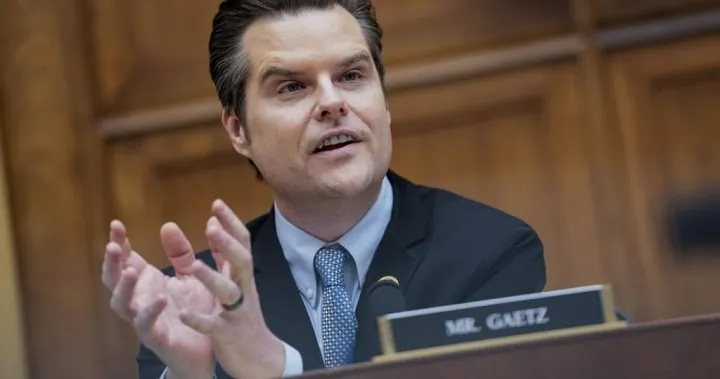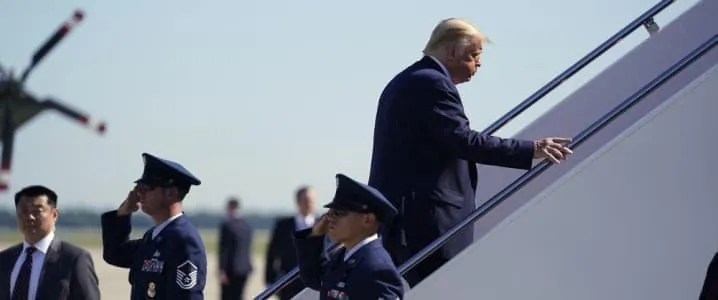
Why America's Allies Are Growing Distanced: It's More Than Just Trump
2024-11-11
Author: Jacob
As Donald Trump makes a surprising return to the presidency, America's allies find themselves in a state of anxiety. Beneath the surface of diplomatic congratulatory messages lies a growing fear that the future of U.S. foreign policy will leave them as mere pawns on a global chessboard. Unlike President Biden's approach, which prioritized strengthening bonds amidst a rising rivalry with China and the repercussions of Russia's invasion of Ukraine, Trump's era could lead to a starkly different landscape.
Under Biden, there were marked successes in solidifying alliances. NATO, spearheaded by the U.S., offered staunch support against Russian aggression, while Europe increasingly aligned with American strategies to counter China. Japan has notably increased military spending and nurtured closer ties with South Korea, and the Philippines has revitalized cooperation with the U.S. to combat China's assertiveness. During NATO's 75th anniversary, there was indeed a sense of accomplishment in U.S. diplomatic circles, with Biden declaring that "we're stronger than ever."
However, a deeper examination reveals an unsettling trend: America’s allies are strategically strewing their allegiances. Many are beginning to explore relationships with countries outside the West, driven more by changing global dynamics than political leaders themselves. This phenomenon is particularly pronounced among nations in the Global South, which increasingly seek strategic partnerships that enhance their autonomy in a world fraught with complexities.
Countries like Turkey and Thailand have been gradually reevaluating their relationships with the U.S. Turkey, a member of NATO that once stood in opposition to Russia during the Syrian conflict, has abstained from U.S.-led sanctions and has instead solidified its ties with Moscow, negotiating grain deals that cater to their broader economic interests. On the other hand, Thailand is moving closer to China, bolstering its military ties, as the necessity of managing regional conflicts takes precedence. Both nations joined the BRICS coalition, signaling a pivot towards non-Western alliances.
It is essential to recognize that the movements of Turkey and Thailand do not necessarily denote anti-American sentiments; rather, they signify a broader strategy of risk management. Thailand continues to engage robustly with the U.S. through major military exercises, and Turkey remains a significant player in American defense markets, even as they explore other diplomatic pathways.
India, despite historically strong ties with the U.S., is also navigating a complicated landscape. The recent BRICS summit allowed Prime Minister Modi to engage with China’s Xi Jinping, signaling a possible shift towards a more balanced approach between the West and expanding Asian influence. Although relations with the U.S. remain solid, there are emerging challenges, notably concerning India’s alignment with Russia and its response to political shifts in neighboring Bangladesh.
Even in traditionally strong U.S. alliances like Japan, there are signals of hedging behavior. Prime Minister Shigeru Ishiba’s vision for an “Asian NATO” exemplifies a commitment to U.S. leadership, yet there is a call for a more equitable partnership that would involve dialogue with China, reflecting the complexities of Japan’s geopolitical position.
The political climate in Europe adds another layer of uncertainty. The rise of anti-establishment parties is reshaping public sentiment regarding NATO and U.S. policy. Nations like Hungary and Slovakia are already adopting more transactional foreign policies that may diverge from American interests, challenging the cohesion of European alliances with the U.S.
The trend of hedging among allies can be attributed to two critical factors: the unpredictability of the global order and the waning of America’s hegemony that dominated the late 20th century. In this evolving landscape, countries are opting for diversified relationships to navigate geopolitical tensions.
While hedging may not yet dominate the behavior of all U.S. allies, it is becoming increasingly prevalent, and the next administration must prepare for this shift. Instead of clinging to an outdated notion of American exceptionalism, the U.S. could benefit from embracing a collaborative approach—recognizing that cooperation in a multi-polar world is paramount.
Transitioning from a position of hegemony to one of strategic partnership will require a delicate balance and a shift in perspective for whoever occupies the White House. This complex recalibration may indeed be a tall order, but it is essential for maintaining influence in a world that is constantly evolving. The upcoming years may demand a fresh approach to diplomacy as America navigates the intricate web of global relationships.









 Brasil (PT)
Brasil (PT)
 Canada (EN)
Canada (EN)
 Chile (ES)
Chile (ES)
 España (ES)
España (ES)
 France (FR)
France (FR)
 Hong Kong (EN)
Hong Kong (EN)
 Italia (IT)
Italia (IT)
 日本 (JA)
日本 (JA)
 Magyarország (HU)
Magyarország (HU)
 Norge (NO)
Norge (NO)
 Polska (PL)
Polska (PL)
 Schweiz (DE)
Schweiz (DE)
 Singapore (EN)
Singapore (EN)
 Sverige (SV)
Sverige (SV)
 Suomi (FI)
Suomi (FI)
 Türkiye (TR)
Türkiye (TR)